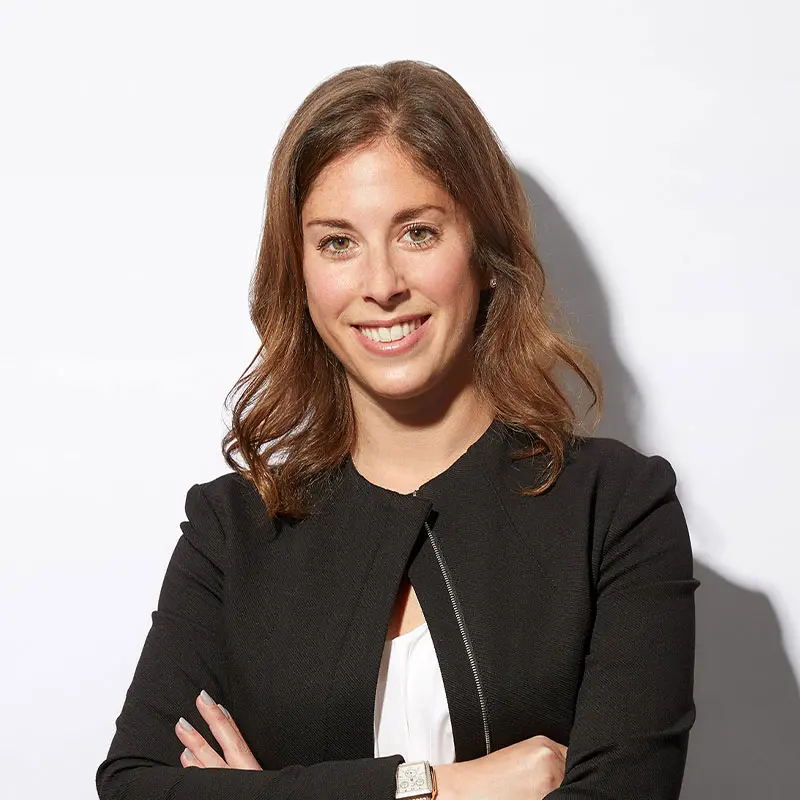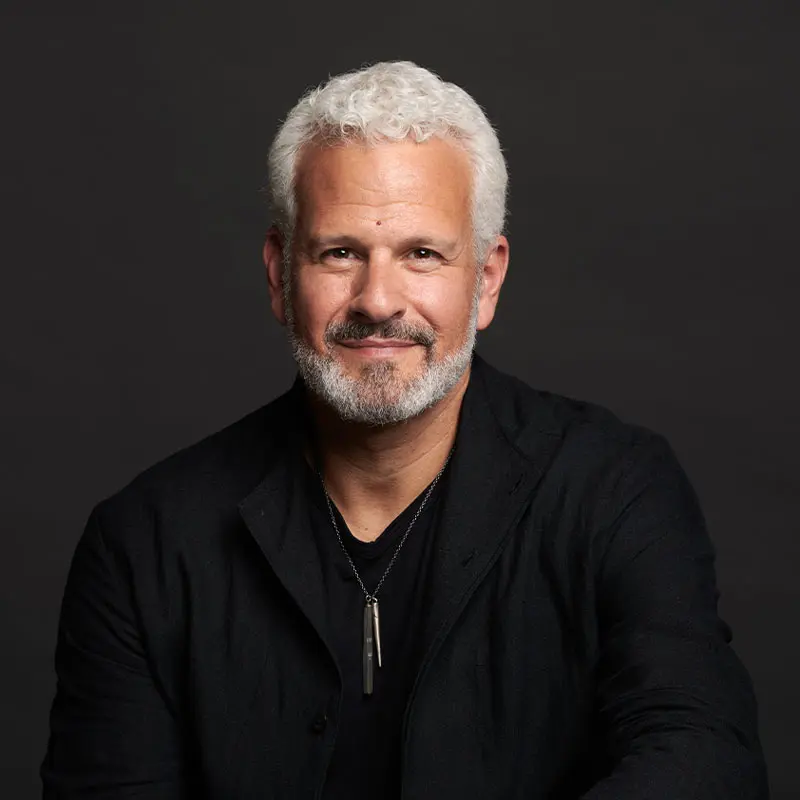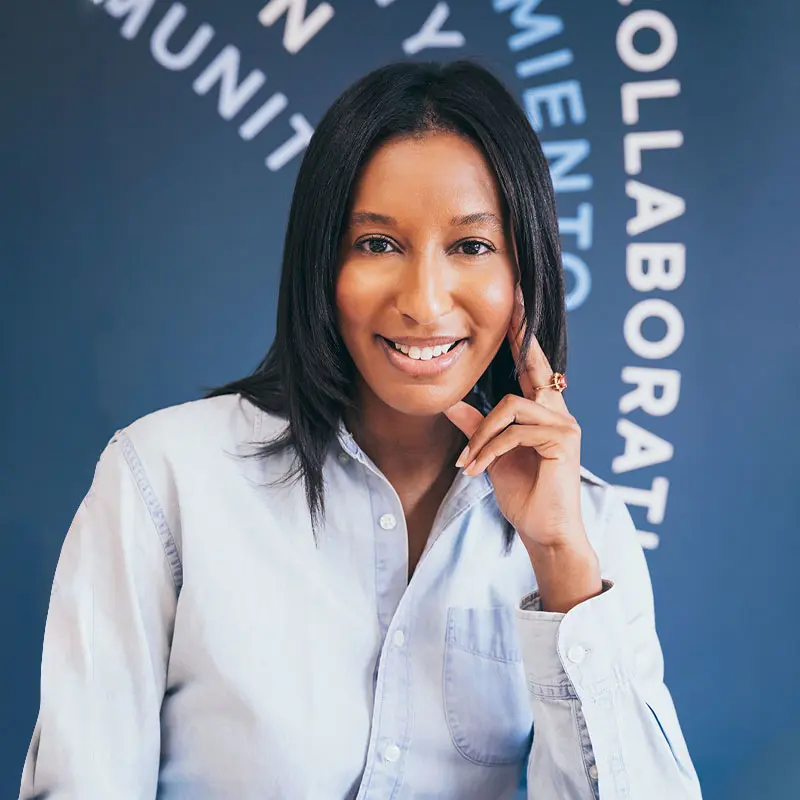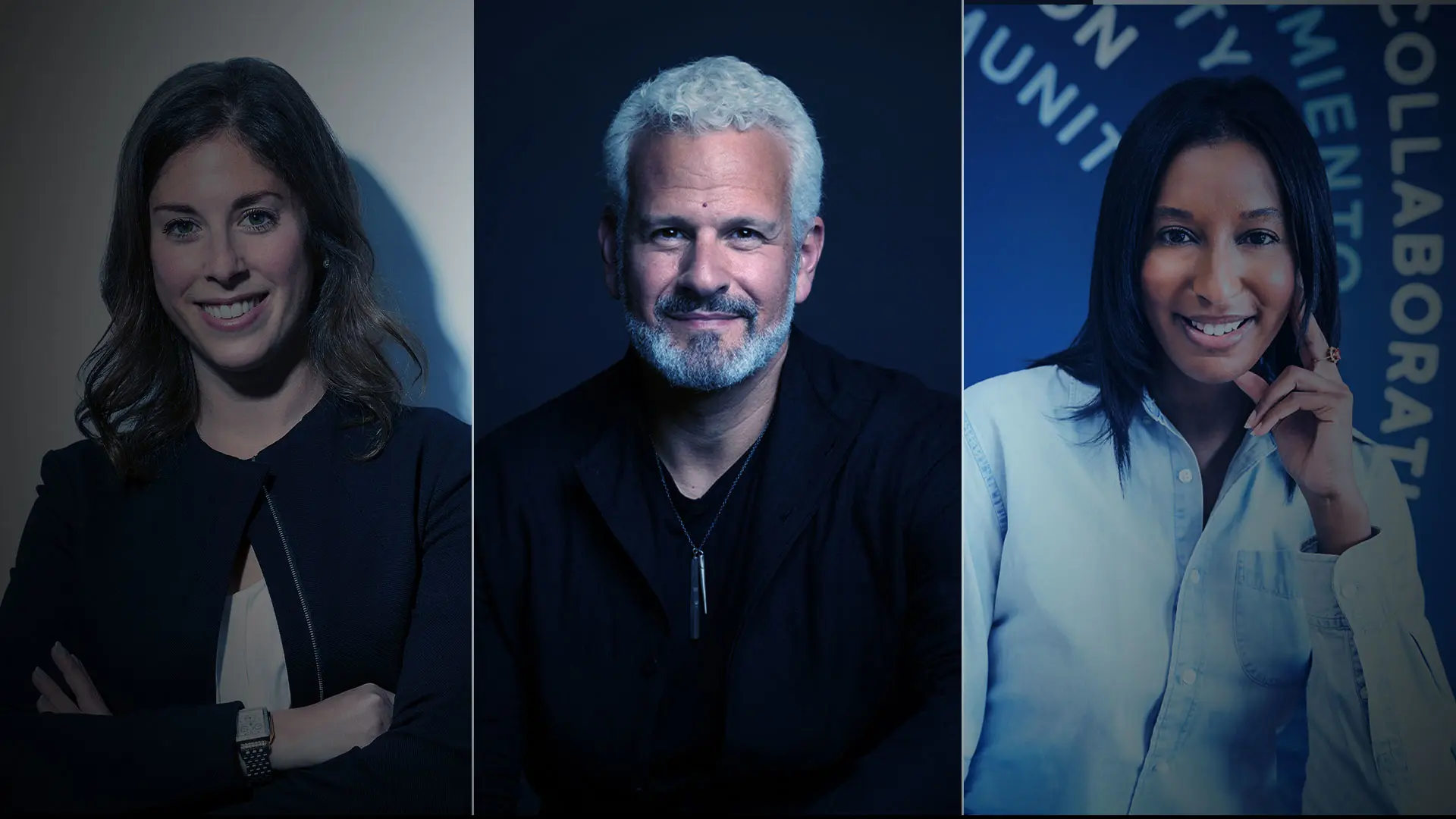
Erica Weinstein, PhD
Dr. Weinstein is currently a Principal at Flagship Pioneering, where she has co-founded Ring Therapeutics, Laronde Therapeutics, and ProFound Therapeutics. Her work has resulted in numerous patents and publications. She earned a PhD in biomedical science in 2015.
You have many accomplishments: What are you focused on now?
As a Principal at Flagship Pioneering, I am a scientist, inventor, and entrepreneur. I am part of a team that founds and grows companies based on new biotechnology. I spend my time exploring emerging areas of science and technology toward the goal of creating breakthrough companies in human health.
Right now, I am focused on a company that Flagship Pioneering recently unveiled, ProFound Therapeutics, which is pioneering the expanded human proteome. We focused initially on the 20,000 protein coding genes that were defined from the Human Genome Project and then wondered: “Are there more?” We discovered that the universe is actually much larger than previously believed. Tackling this question gave us insights into an expanded universe of human proteins, culminating in the founding of ProFound Therapeutics.
We are developing a platform to uncover this expanded proteome and enable the development of new medicines. As co-founder and Head of Research, I lead the genesis and growth of the platform, value creation strategy, and innovation. I am building a stellar team of scientists to strengthen our protein discovery platform to ultimately unlock new pathways for treating disease.
What were some of the most challenging career issue(s) you faced?
I have always been passionate about science, but I’m very focused on having a positive impact on human health. At the time of my graduate studies, however, charting a path that melded these interests was not easy. At Mount Sinai and the broader New York City network, I was fortunate to be mentored by those who had crafted their own alternative career paths. Through the support of these mentors, I sought experiences and conversations that began to increase my enthusiasm for entrepreneurship and company creation. Ultimately, I learned about Flagship Pioneering and its unique model that encourages the freedom to imagine the impossible and translate that vision into rigorous science, forming the foundation of the next wave of biotech companies.
How, specifically, did your training at Mount Sinai contribute to your success?
I was challenged to think outside of the box. I was trained to deeply evaluate hypotheses and experimental approaches, brainstorm more powerful methods, and explore alternative interpretations of data. During my graduate work, I frequently wondered “Why not … ?” This has come in handy for my career as a scientist-entrepreneur, thinking creatively, challenging dogma, and using my imagination to envision a potential future state not yet plausible today. Mount Sinai provided me with a strong foundation for scientific ideation. Not only am I able to explore far-fetched scientific hypotheses, but I am also able to hone in on the scientific details, which I learned through my Mount Sinai education.
Any advice for today’s students?
Mount Sinai was incredibly supportive of me pursuing my passion. My main advice is to gather experiences that help you craft your ultimate vision for your career, learn as much as you can, take advantage of what is within and beyond Mount Sinai, and don’t hesitate to create your own path and to seek out and form bonds with the mentors who will help guide you there.

Adam Gazzaley, MD, PhD
Dr. Gazzaley is the David Dolby Distinguished Professor in Neurology, Physiology, and Psychiatry at the University of California, San Francisco. He is also the Founder and Executive Director of Neuroscape, a translational neuroscience center engaged in technology creation and scientific research, and Co-Founder and Chief Science Advisor of Akili Interactive, a company that develops therapeutic video games. He received a dual MD/PhD degree in Neuroscience in 1998.
You have many accomplishments: What are you focused on now?
My main focus at Neuroscape is to more closely integrate our efforts across the many approaches that we engage in: closed-loop video game treatments, noninvasive brain stimulation, multimodal biosensing, immersive multisensory stimulation, machine learning, neuroimaging, and psychedelic treatments. At Akili, I am focused on helping the company scale our Food and Drug Administration-approved treatment to millions of people across multiple clinical conditions, as well as advance the development of novel treatments.
What were some of the most challenging career issue(s) you faced?
One of the most challenging areas for me was to learn how to translate ideas, inventions, and discoveries from my lab into the real world. I did not know anything about intellectual property, company formation, investments, business development, regulatory approval. It was a steep learning curve, but finding the right partners to trust and learn from was the key to my success.
How, specifically, did your training at Mount Sinai contribute to your success?
I learned how to be a scientist at Mount Sinai—not just how to approach a problem, but the tenacity to take a complex project through to completion.
Any advice for today’s students?
Dream big, but learn how to be comfortable playing the long game. Few people do that very well; it will be a strong differentiator.

Akilah King, MPH
Akilah King, MPH, is Chief Executive Officer of Room to Grow, a nonprofit that provides critical support to families raising babies born into low-income circumstances through structured parenting and child development programs that start during the last trimester of pregnancy and extend to the child’s third birthday. Ms. King received her Master of Public Health degree in Global Health in 2015.
You have many accomplishments: What are you focused on now?
As chief executive officer of a nonprofit, I’m now focused on bolstering our current operations infrastructure and fundraising capacity in preparation for our next stretch of programmatic growth. Building and maintaining organizational durability is essential to successful scaling.
What were some of the most challenging career issue(s) you faced?
One was overcoming my own imposter syndrome. Although I’ve always seen myself as a leader, there have been times when I’ve doubted whether I have what it takes to truly make a difference—until I realized I was comparing who I wanted to be to other leaders in the field. After some self-work, I learned to understand that my unique leadership style and philosophy are what make me so effective. The same playbook doesn’t work for everyone, and there’s more than one pathway to achieving social impact. As one coach once told me, "Leadership is like golf—different club, same swing fundamentals." I think of this every time I’m faced with a new leadership challenge. Whether it’s navigating the organization through the COVID-19 pandemic or developing our next five-year strategic plan, I have foundational leadership qualities that I can always count on.
How, specifically, did your training at Mount Sinai contribute to your success?
My time as a Mount Sinai MPH student helped broaden my perspective of public health. Beforehand, I had spent extensive time in West Africa supporting the opening of an orthopedic hospital and conducting clinical research on orthopedic patients. During my time there, I was naturally drawn to community health—infectious disease and malnutrition specifically. Up until that time, I thought of public health as just an offshoot of medicine. Through my time at Mount Sinai and post-graduation, I began to see public health as a societal driver and highly intersectional and interdisciplinary. This is important for us to acknowledge in the nonprofit sector as we need to do a better job of partnering with each other, data-sharing, and developing comprehensive, wraparound programs for our constituents.
Any advice for today’s students?
My advice for today’s students is don’t doubt that you can be a changemaker—and accept that you can’t plan 100 percent for your career trajectory.
